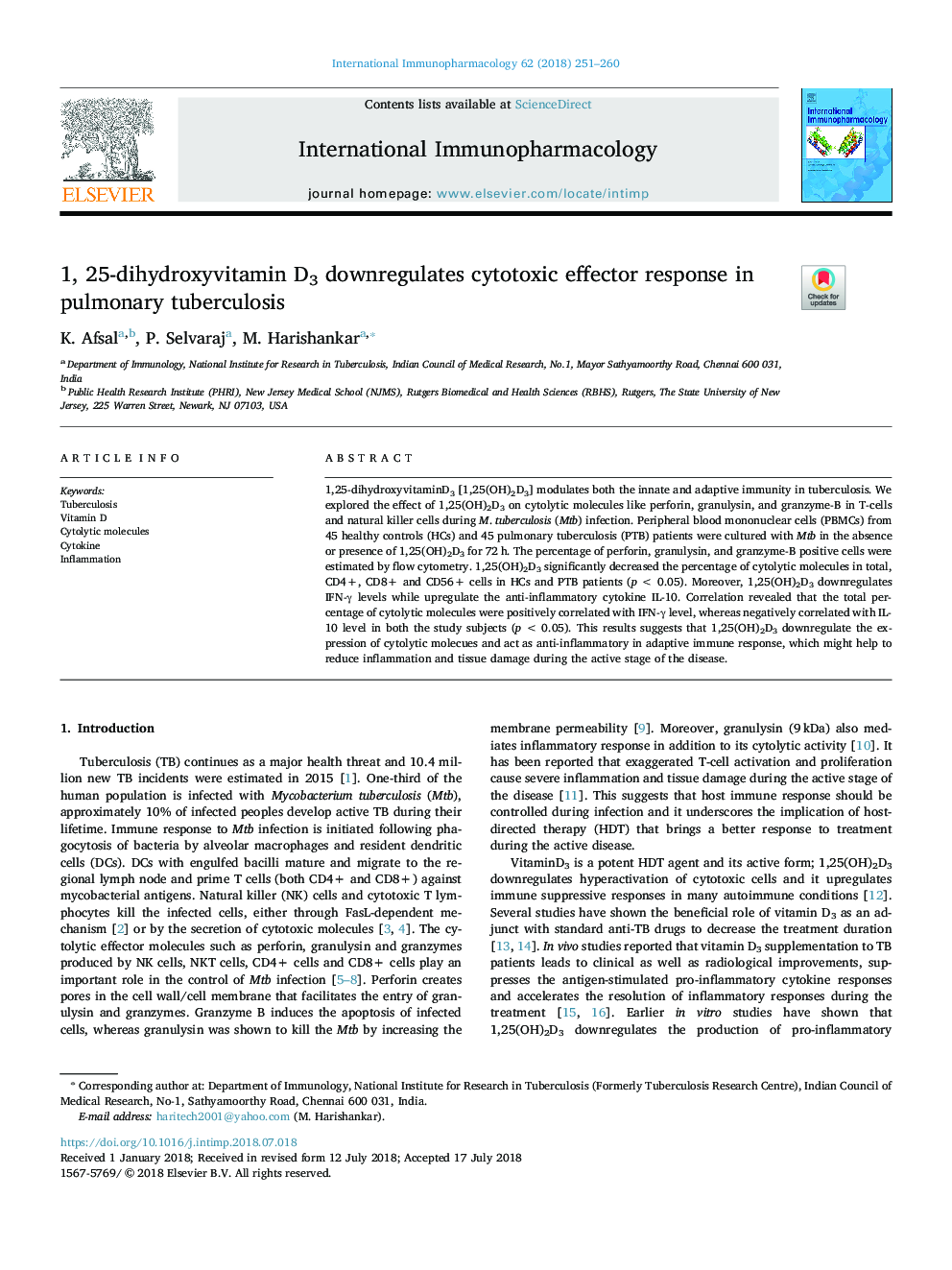| Article ID | Journal | Published Year | Pages | File Type |
|---|---|---|---|---|
| 8530988 | International Immunopharmacology | 2018 | 10 Pages |
Abstract
1,25-dihydroxyvitaminD3 [1,25(OH)2D3] modulates both the innate and adaptive immunity in tuberculosis. We explored the effect of 1,25(OH)2D3 on cytolytic molecules like perforin, granulysin, and granzyme-B in T-cells and natural killer cells during M. tuberculosis (Mtb) infection. Peripheral blood mononuclear cells (PBMCs) from 45 healthy controls (HCs) and 45 pulmonary tuberculosis (PTB) patients were cultured with Mtb in the absence or presence of 1,25(OH)2D3 for 72â¯h. The percentage of perforin, granulysin, and granzyme-B positive cells were estimated by flow cytometry. 1,25(OH)2D3 significantly decreased the percentage of cytolytic molecules in total, CD4+, CD8+ and CD56+ cells in HCs and PTB patients (pâ¯<â¯0.05). Moreover, 1,25(OH)2D3 downregulates IFN-γ levels while upregulate the anti-inflammatory cytokine IL-10. Correlation revealed that the total percentage of cytolytic molecules were positively correlated with IFN-γ level, whereas negatively correlated with IL-10 level in both the study subjects (pâ¯<â¯0.05). This results suggests that 1,25(OH)2D3 downregulate the expression of cytolytic molecues and act as anti-inflammatory in adaptive immune response, which might help to reduce inflammation and tissue damage during the active stage of the disease.
Related Topics
Life Sciences
Immunology and Microbiology
Immunology
Authors
K. Afsal, P. Selvaraj, M. Harishankar,
